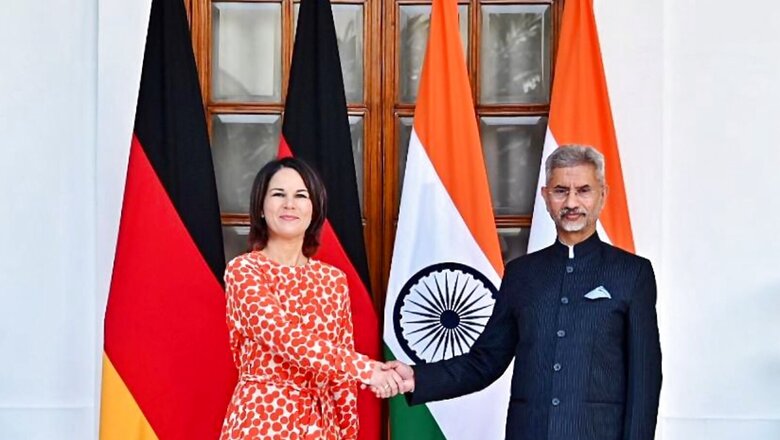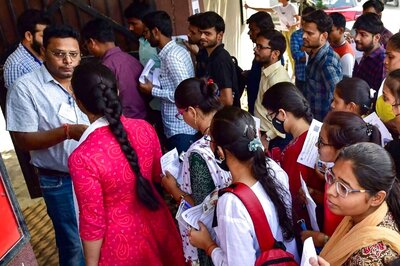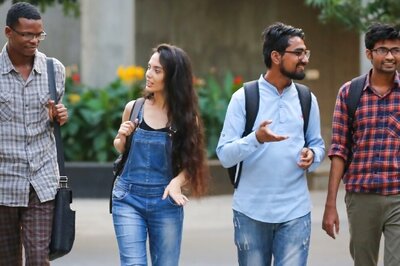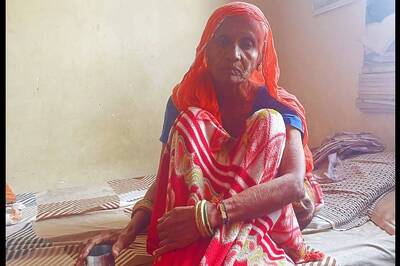
views
German Foreign Minister Annalena Baerbock made her first visit to India on 5 and 6 December. This visit coincided with three important developments. The first was the publication by Chancellor Olaf Scholz of his comprehensive essay The Global Zeitenwende: How to Avoid a New Cold War in a Multipolar Era on the reformulation of Germany’s foreign and security policy in the foreign affairs for the first quarter of 2023. The second was that the visit took place two days before the first anniversary of the German coalition government. Thirdly, the visit took place just as 3000 German security personnel swooped upon elements of the Reichsburger, a right-wing group accused of trying to violently overthrow the German government.
Baerbock’s visit followed up the inter-governmental consultations between India and Germany, held in Berlin in May when Prime Minister Narendra Modi and Chancellor Scholz met officially for the first time. 14 agreements were signed and wide-ranging discussions revitalised the partnership under the Scholz chancellorship. Baerbock, meanwhile, was busy with her own agenda as she leads the Greens, on whose behalf, she was the chancellor candidate and guides the foreign ministry on her pet themes. These have been Europe, the environment, human rights, women and the like. She differs with Scholz on China and is critical of the Social Democratic Party’s (SPD) older Russian policy. On India, the Greens and the SPD seem to abide by their coalition compact where all three parties agreed to develop the relationship.
It is evident that the Chancellery calls most of the shots where India is concerned. As on China, the foreign ministry is crafting a new strategy by next year. On India, there seems to be a greater congruity within the German government and Baerbock made the right statements in her interaction with EAM Dr S Jaishankar.
The visit was a bit delayed since she had already visited Pakistan in June. It was like obtaining an understanding of India. There is speculation that as a young politician with no exposure to India, Baerbock and her Greens have an incomplete understanding of the country. Her statements regarding Jammu and Kashmir twice, once in Pakistan and the other during the visit of Bilawal Bhutto to Berlin caused concern in New Delhi. On the current trip, she was more laudatory of India’s democratic credentials, which made it a valued partner for Germany.
For the Greens, a partner of values for an international rules-based order is perhaps a badge of merit. This is what Baerbock was publicly saying. The visit was thin on new announcements since most had already been made during the Inter-Governmental Consultations (IGC). The only new thing was the signing of the migration and mobility partnership agreement, an enabling agreement for India to access Germany when new migration laws are set in 2023. Scholz wrote in his essay in Foreign Affairs that Germany needs foreign workers and would like to get them from like-minded countries. This is where India comes in. This agreement is therefore timely and well thought out.
The tensions, if any, from the statements on J&K were not publicly visible. There was discussion on different parts of the world including Ukraine, China, Pakistan, Afghanistan and the Indo-Pacific. It is clear that India and Germany do not see eye to eye on all regions but the approach of seeking a multipolar world, in which both India and Germany should play autonomous roles, which would be mutually supporting, became evident.
The big takeaways from the visit are that Baerbock now has a better understanding of India, both at governmental levels and through interaction with civil society. Her visits to the Delhi Metro, the Election Commission (EC), Chandni Chowk and villages around Delhi to see women’s empowerment, implementation of financial inclusion, how elections are conducted, and renewable energy perhaps met her priorities.
Other than meeting EAM who hosted a lunch for her, she did not have any other official meetings. Some wondered why. For a major country like Germany, she did not get a call on the Prime Minister. Perhaps, the election schedule came in the way. It is a sign that the German Foreign Ministry and India need to work more closely together to have that level of confidence. It is evident that the EAM and the German foreign minister reached a better understanding of each other and how they approach issues despite differences in perception. They believe that they are on the same side and can develop relationships which need not ostracise other countries and deal with them practically.
Another important takeaway is that India does not need to be a part of the Zeitenwende to find a place for itself in German policy. India is seen through the German Indo-Pacific guidelines. These guidelines are now being elaborated into policy postures. Germany is engaging India, ASEAN and other parts of the Indo-Pacific with greater technological and economic interest. This is not necessarily a zero-sum game with their interest in China, which remains high and unrelenting. The German Indo-Pacific policy is more like a China plus one policy in which Germany seeks to expand its economic engagement in a strategic sense, but it does not have the strategic heft like the UK or France have large naval contingents in the Indian Ocean. Germany, therefore, needs to be seen differently. The financing of €10 billion that it provides India till 2030 is a game changer. This quantum of financial flow for green and sustainability partnerships does not come from other European or North American partners.
An understated part of the visit was that Germany agreed to join the IPOI (Indo-Pacific Oceans Initiative). This is in line with their earlier support to the CDRI (Coalition for Disaster Resilient Infrastructure) and the ISA (International Solar Alliance). Germany would like to support some pole of the IPOI with which it could be associated, but that has not been enunciated yet.
It appears that the understanding between EAM and the German foreign minister is much better and this will improve the ambience of the Indo-German partnership. For India to have the Foreign Office and the Chancellery in Germany on the same page would be an achievement, since for many years, even during the Merkel period, the India policy was largely run by the Chancellery leaving the foreign ministry to its own devices. The Baerbock visit was an opportunity to have the German establishment see India in a common light and build a better understanding of the evolving international situation.
The writer is a former Indian ambassador to Germany, Indonesia, Ethiopia, ASEAN and the African Union, chair of the CII task force on trilateral cooperation in Africa, and a professor at IIT Indore. Views expressed are personal.
Read all the Latest Opinions here




















Comments
0 comment